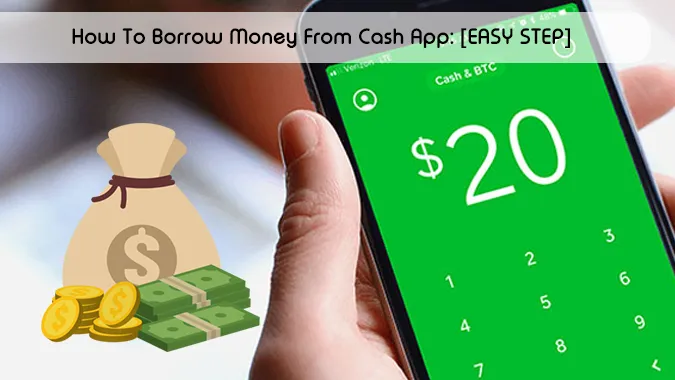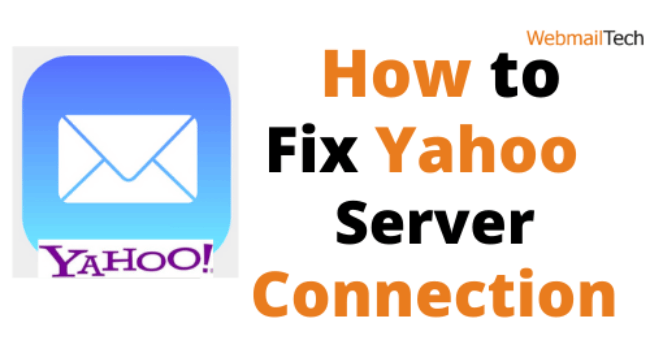Roadrunner Email Settings is a well-known brand among today’s mail service users. It gives users a better mailing experience because it is free of server issues or problems. It sends and receives emails in a blink of an eye. As a result, it is mostly used in industry.
If you choose to use Roadrunner on your devices and email client services. You’ll need an excellent manual to easily customize Roadrunner email settings. The following guide describes all of the necessary Roadrunner email settings. All you need to do is enter and apply. The Roadrunner email settings that relate to your device type and email client platform.
Contents
ROADRUNNER IMAP Settings (Incoming Mail Server)
The Roadrunner IMAP settings required to set up incoming mail services on your account are specified in the table below.
If you skip any of the Roadrunner IMAP settings described here, you will not be able to accept any incoming mails in your inbox.
| ROADRUNNER.COM Type of incoming email server account | IMAP |
| Incoming Email Server Username | Your full email address |
| Incoming Email Server password | Your Email Password |
| Incoming Email Server hostname | mail.twc.com |
| Incoming Email Server Port | 993 |
| Incoming Email Server TLS/SSL required | YES |
| Authentication required | YES (Email account Username and Password) |
When you apply all of the IMAP server settings highlighted in the table above, your Roadrunner email account’s incoming mail services will be successfully activated.
ROADRUNNER POP3 Settings (Incoming Mail Server)
When configuring your ROADRUNNER email account, you may choose to use the POP server configuration rather than the IMAP server configuration. Depending on your conditions, both server options allow your email account to access incoming email services.
If you want to continue with the POP server setup on your account, find the correct Roadrunner POP3 settings in the table below.
| Incoming Email Server account type | POP |
| Incoming Email Server user name | Your full email address |
| Incoming Email Server password | Your Email Password |
| Incoming Email Server hostname | mail.twc.com |
| Incoming Email Server Port | 995 |
| Incoming Email Server TLS/SSL required | YES |
| Authentication required | YES (Email account Username and Password) |
Your account will be successfully configured as a POP account after carefully applying the above server settings. You will be able to receive emails in your inbox without issue or problem.
ROADRUNNER SMTP Settings (Outgoing Mail Server)
To allow the outgoing mail services of your Roadrunner email account, enter and apply the Roadrunner SMTP settings which was shown in table below. It is important to enter and apply each server setting mentioned below.
| Incoming Email Server account type | SMTP |
| Incoming Email Server user name | Your full email address |
| Incoming Email Server password | Your Email Password |
| Incoming Email Server hostname | mail.twc.com |
| Incoming Email Server Port | 587 |
| Incoming Email Server TLS/SSL required | YES |
| Authentication required | YES (Email account Username and Password) |
When you apply the above-mentioned ROADRUNNER SMTP settings, they will create outgoing mail services for your ROADRUNNER.COM email account. After applying the SMTP server settings, you can send an email to someone to confirm the activation of outgoing mail services.
Spectrum Roadrunner Email Settings
Are you looking for the proper Spectrum Roadrunner email settings? Then your hunt is over. Find the Spectrum Roadrunner email settings that will allow you to successfully customise your Roadrunner email account. You must enter and apply both the Roadrunner IMAP and SMTP settings mentioned below.
- To begin, search and open the My Accounts section on your device, then click the Add Account button.
- Now to try to login, you must now enter your Roadrunner email address and password in the fields given.
- Enter and apply the following Roadrunner IMAP settings:
Input mail.twc.com IMAP server Security Type None IMAP port 993 Security port 993 Security type SSL/TLS Insecure port 143 Security type None - Enter and apply the following Roadrunner IMAP settings:

- Enter mail.twc.com as the SMTP server and choose security type to none.
- Set the security type to SSL/TLS. Set the SMTP outgoing roaming server (insecure port) to 587 and the security type to none.
- Simply click the Done button to save the Spectrum Roadrunner IMAP and Spectrum Roadrunner SMTP settings.
Since then, we’ve provided the Spectrum Roadrunner email settings. Now that your account has been successfully installed, you will continue to use Roadrunner email services without interruption.
Roadrunner Email Settings For iPhone
The following guide will discuss the process of configuring your Roadrunner email account on iPhone.
When you are configuring your Roadrunner email account on iPhone, the next thing that comes to mind is the Roadrunner email settings for iPhone.
Don’t worry, all of these settings, as well as the other proper steps are properly mentioned below.
1- start, tap the iPhone’s Settings button.
2- Now Click on “Mail” option from the list of available options.
3- Choose the “Accounts” option.
4- Select the “Add Account” option.
5- Select “Other” from the list of available options.
6- Select the “Add Mail Account” options.
7- You must now enter all of the required information, such as your name, complete email address, and password, into the appropriate field boxes before clicking the “Next” button.
8- Depending on the requirements, you can choose between a POP or an IMAP server.
9- If you have chosen to use a POP server for incoming mails, you must enter all of the correct information in the incoming mail server and outgoing mail server sections, as shown below.
- In place of the username, you must enter your full email address. On both incoming and outgoing mail servers, the username and password would be the same.
- In place of the incoming mail server hostname, write “mail.twc.com.”
- In place of the outgoing mail server hostname, type “mail.twc.com.”
You can also use the IMAP server instead of the POP server for incoming emails, and then enter the server settings as shown below.
- As the username, enter your complete Roadrunner email address. The username and password would be the same for both the outgoing and incoming mail servers.
- Put “mail.twc.com” in place of the incoming mail server hostname.
- Put “mail.twc.com” in place of the outgoing mail server.
10- After entering all of the above information and server details, depending on whether you chose a POP or IMAP server, click the “Next” button.
11- You can see a prompt message on your iPhone’s display asking you to confirm the incoming and outgoing mail server settings that you have joined. Simply click on the “Continue” button for both the incoming and outgoing servers, or pick “Details” and then click on “Trust.”
12- To save and apply the previously listed server settings, press the “save” button.
13- Choose the account that you just created.
14- Now, select the SMTP server.
15- You must verify and confirm that the SMTP server settings are the same as shown below, and then press the “Done” button.
- In place of the outgoing mail server hostname, enter “mail.twc.com.”
- In place of username, enter your complete Roadrunner.com email address.
- Your email account password must be entered in the password section.
- You can allow or disable SSL and then enter and apply the server settings as mentioned below.
Outgoing secure (SMTP) port 465 Security Type TLS/SSL (Accept all certificates) Outgoing secure (SMTP roaming server) port 587 Security type TLS/SSL (Accept all certificates) Outgoing (SMTP) port 25 Security type None (Accept all certificates) Outgoing insecure (SMTP roaming server) port 587 Security type None (Accept all certificates) - For the purpose of Security, the option “Password” must be selected.
Thank you so much! You can now access the Roadrunner email services from your iPhone. You have successfully configured your Roadrunner email account using the above-mentioned Roadrunner email server settings for iPhone.
Roadrunner Email Settings For iPad
If you’re searching for Roadrunner email settings for iPad, the following guide will come in handy. The procedure is the same as with the iPhone. The iPad and iPhone use the same operating system, iOS. As a result, the Roadrunner email configuration process is the same for both the iPhone and the iPad.
Follow and apply the same above-mentioned Roadrunner email server settings carefully, and you’ll have your Roadrunner email account installed on your iPad in a matter of minutes.
Roadrunner Email Settings For Outlook (Automatic Setup)
Do you want to know the correct Roadrunner email settings for Outlook? No need to worry, the perfect solution to your inquiry can be described below. The guide below outlines the step-by-step procedure for configuring a Roadrunner email account in Outlook using automatic server settings. Simply follow all of the measures carefully, and your Roadrunner email account will be successfully installed on Outlook. Let’s get started.
- To start, open the Outlook programmer on your computer.
- Now, from the available menu bar, select the Tools icon.
- Select the “Accounts Settings” choice.
- Go to the email tab on the Account Settings page and then click on “New“
- Select “Microsoft Exchange, IMAP, POP3 or HTTP” and then tap the “Next” button.
- You must now enter all of the required information, such as your name, email address, and password, into the appropriate fields before clicking the “Next” button.
- Click on the “Internet email” option and tap on “Next” Button.
- Now, depending on whether you choose to use an IMAP or POP server, you must enter all of the correct information in the appropriate fields and then click on “More Settings.”
- Move to the outgoing server tab and check the boxes next to “My outgoing server (SMTP) needs authentication” and “Use same settings as my incoming mail server.”
- Go to the Advanced tab and double-check that the server settings for your IMAP or POP server are as shown below.
Roadrunner POP3 settings
| Incoming port | 110 |
| Outgoing port | 857 |
| Secure port | 995 |
| Security type | SSL/TLS (Accept all certificates) |
| Insecure port | 110 |
| Security type | None (Accept all certificates) |
| “This server requires an encrypted connection (SSL)” | It must not be chosen |
| “Use the following type of encrypted connection (SSL)” | Must be set to None |
Roadrunner IMAP settings
| Incoming port | 143 |
| Outgoing port | 587 |
| Secure port | 993 |
| Security type | SSL/TSL (Accept all certificates) |
| Insecure port | 143 |
| Security type | None (Accept all certificates) |
| “This server requires an encrypted connection | It must not be chosen |
| “Use the following type of encrypted connection | Must be set to None |
- If you have selected the secure SSL/TLS settings, check the “This service needs a secure link (SSL)” checkbox for both incoming and outgoing mails.
Roadrunner SMTP settings
| Outgoing secure port (SMTP) | 465 |
| Security type | SSL/TLS (Accept all certificates) |
| Outgoing secure port (SMTP roaming server) | 587 |
| Security type | SSL/TLS (Accept all certificates) |
| Outgoing port (SMTP) | 25 |
| Security type | None (Accept all certificates) |
| Outgoing insecure port (SMTP roaming server) port | 587 |
| Security type | None (Accept all certificates) |
11: To save the previously mentioned server settings, click the “OK” button.
12: Finally, press the “Next” button and then the “Finish” button to finish the account configuration process.
Excellent! Your Roadrunner email account was successfully set up using the manual setup process, and you are now ready to use the Roadrunner email services using the Outlook software on your device.
This guide has provided you with the right Roadrunner email settings for various devices and email client platforms. We believe you can now easily set up your Roadrunner email account. Good luck with your emails!
If the Roadrunner email settings mentioned in this guide do not fit with your computer or email client platform, please contact our team as soon as possible. Our team is available to assist and guide you 24/7.
Stay tuned to this page for more information on the RGV.RR.COM and SASKTEL.NET email settings.






